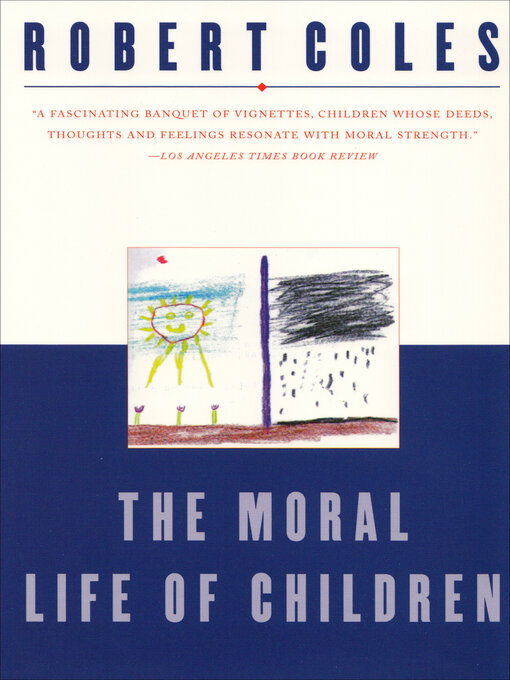In this searching, vivid inquiry, Robert Coles shows how children struggle with questions of moral choice. Bringing to life the voices of children from a rich diversity of backgrounds, including regions plagued by poverty or social unrest, he explores their reactions to movies and stories, their moral conduct, their conversations and relationships with friends and family, and their anxieties about themselves and the fate of the world. Whether they are from the poorest classes of Rio de Janeiro or middle-class America, these children lead lives of intense moral awareness.
"What meaning do terms like 'conscience' or 'moral purpose' hold for malnourished, sick, poorly clothed children in Brazilian slums or South African hovels, children whose main goal is to survive another day? In attempting to answer this question, child psychiatrist Coles shows how children in the most trying circumstances manage to maintain their moral dignity."—Publishers Weekly
-
Creators
-
Publisher
-
Release date
December 1, 2007 -
Formats
-
Kindle Book
-
OverDrive Read
- ISBN: 9780802196583
-
EPUB ebook
- ISBN: 9780802196583
- File size: 2883 KB
-
-
Languages
- English
-
Reviews
-
Publisher's Weekly
January 1, 1986
What meaning do terms like "conscience'' or ``moral purpose'' hold for malnourished, sick, poorly clothed children in Brazilian slums or South African hovels, children whose main goal is to survive another day? In attempting to answer this question, child psychiatrist Coles (Children of Crisis) shows how children in the most trying circumstances manage to maintain their moral dignity. Using field notes on poor black and white families in the South, Coles convincingly argues that kids don't merely respond to parental promptings but also fashion their independent sense of how the world works or ought to work. Preteens' very real fears of the nuclear bomb come through in conversations that reflect their outrage at adults for allowing the arms race to continue. Coles's belief that trashy movies may leave children unscathed and even help them sort things out is too pat. His tendency to psychoanalyze dilutes the impact of his findings; the ever-present threat of death facing slum children is the ``equivalent of an oedipal father,'' he writes. Despite such lapses, this mixture of rumination, reportage, quotation, anecdote and sociological analysis is powerful. January 28 -
Library Journal
February 15, 1986
Child psychiatrist Coles received the Pulitzer Prize in 1973 for his Children of Crisis, a multi-volume cross-cultural study of American children as moral witnesses to social struggle. The present work, issued in two companion volumes, expands on that theme by including transcripts and thematic analyses of probing interviews with children in Brazil, French Canada, Nicaragua, Northern Ireland, Poland, South Africa, and Southeast Asia, while occasionally comparing their responses with interviews of American children. Coles's field work methodology is not made explicit enough, the transcripts are highly edited and undocumented, his subjects seem to have been chosen because they were articulate and resourceful, and he admits to an existential bias that one's moral or political conscience is tested only through adversity. Nevertheless, these volumes raise fundamental questions and make an important contribution to the literatures of survival, poverty, and political socialization. Most of his subjects display unnerving composure while living in constant moral jeopardy, and cope by what Coles admiringly terms "an Orwellian attentiveness to the drama of everyday life." These compelling narratives form a vivid testament to the embattled moral stature of children in a diversity of cultures. Both volumes are recommended for those concerned with moral education, the child as citizen, or nationalism as an aspect of childhood. Both include children's drawings that mirror with evident pathos each child's fears and aspirations. William Abrams, Portland State Univ. Lib., Ore.
-
Formats
- Kindle Book
- OverDrive Read
- EPUB ebook
Languages
- English
Loading
Why is availability limited?
×Availability can change throughout the month based on the library's budget. You can still place a hold on the title, and your hold will be automatically filled as soon as the title is available again.
The Kindle Book format for this title is not supported on:
×Read-along ebook
×The OverDrive Read format of this ebook has professional narration that plays while you read in your browser. Learn more here.


